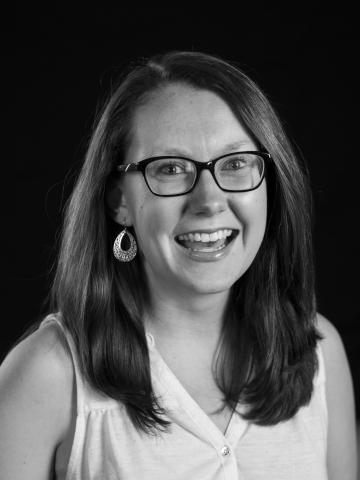
Olivia Whitener is an editorial assistant for Sojourners and would like to thank all of her college friends who requested help on their term papers for improving her editing and writing skills enough to serve in this position. Originally from Lawrenceville, N.J., Olivia has spent the past four years at Wake Forest University in Winston Salem, N.C. working towards her degree in Anthropology.
While at Wake Forest, Olivia focused her studies in cultural and linguistic anthropology, particularly human-rights based anthropology and intercultural communication. She enjoys balancing the intricate theories of cultural relativism and universal human rights when working toward justice throughout the world. Olivia is excited to explore the ways that print and online media can promote on-the-ground social justice work to make positive change.
For the past three summers, Olivia has spent her summers singing songs, leading games, and watching the Spirit move at Cross Roads Camp and Retreat Center in Port Murray, N.J., an ecumenical ministry of the Evangelical Lutheran Church in America and the Episcopal Church. In addition to singing songs around a campfire, reading while drinking a cup of coffee and laughing loudly in public places bring Olivia joy.
You can follow Olivia on Twitter: @owhitener.
Posts By This Author
I Am a Mainline Protestant Under the Age of 35. Yes, We Exist.

Image via Elena Kharichkina / Shutterstock
I spend (most of) my Sunday mornings sitting in a pew at an Evangelical Lutheran Church in America congregation, singing old hymns, and reciting the Lord’s Prayer which I have had memorized since before I went to school.
At age 22, I make an effort to get my dose of word and sacrament before heading to brunch on Sunday mornings. Though I love the beach, I found greater joy in singing songs and leading Bible studies at a mainline church camp during my recent summers.
I love the sound of an organ.
New Malala Documentary a Model for Interfaith Learning
The story of Malala Yousafzai is well beloved by Western media, with news outlets having followed her life closely for the past three years. And rightly so. The Pakistani teen is an activist for girls’ education and a well-respected world leader in promoting the voices of women and girls around the globe.
It was her belief that all girls have a right to an education that made her a target of the Taliban, resulting in Malala losing hearing in her left ear and being forced out of her beloved home in the Swat Valley, Pakistan. Malala celebrated her sixteenth birthday by addressing the United Nations in 2013, the same year she released her memoir, I Am Malala. And most recently, she was named the Nobel Peace Prize recipient of 2014. Her non-profit, The Malala Fund, invests and advocates for girls’ secondary education, in order to amplify the voices of girls around the world who have been ignored.
It would be hard to create a stronger superhero for girls and boys in anyone’s imagination.
'Accidental Saints' Is a Call for a Vulnerable Church
Within her tale of adding reconciliation to her annual lessons and carols was a challenge to the church: to come out of the hole of escapism and into “a place where we dive right into difficult truths.”
With hard-hitting candor, Pastor Nadia asked, “When we find ourselves in a world where we see up-to-the-minute images of human suffering...can we really afford quite so much sentimentality in Christianity?”
As we see bodies of child refugees washed upon shorelines, can we sit comfortably in our pews, not asking for any changes to our hospitality or political structures? When we know that innocent lives continue to be lost at the expense of keeping control of our guns for our own personal safety, does it make sense for us to gloss over the stories in the Gospel where Jesus proclaims peace over all things? Is Christianity about memorizing the most inspirational verses of the Bible, or is it about putting them into action to combat the injustices of our reality?

